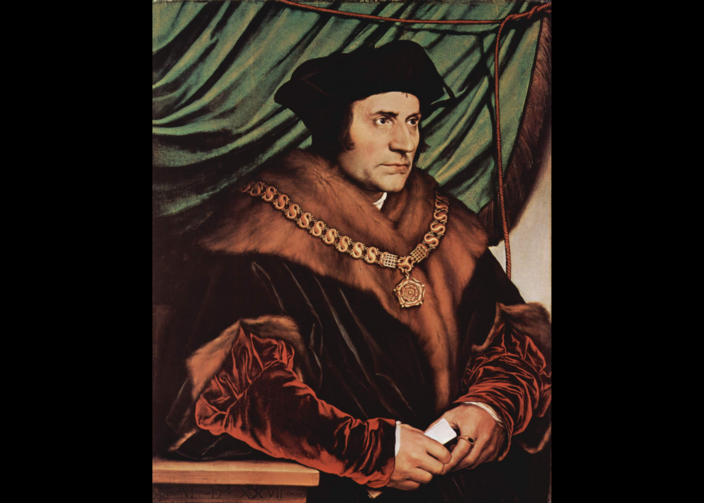A Reflection for Saturday of the Eleventh Week in Ordinary Time
Find today’s readings here.
I have been on what I might call a “lawyer kick” recently: In a class I’m taking, I am reading Cicero’s “De Oratore” (“On the Ideal Orator”), which discusses how one should formulate arguments and what qualities an orator should possess to be the best. In a novel I recently finished, one of the characters is a lawyer whose mind and words are so captivating that his political nemeses must listen to him speak. And one of my best friends who just finished her second year in law school, sent me a paper to proofread on laws about dogs, full of every pun in the books. Today being the feast of Thomas More, patron saint of lawyers, is the fourth piece in this list of lawyerly coincidences.
While the picture of him in my head is that stoic and staid face of Paul Scofield in the 1966 film adaptation of “A Man for All Seasons,” Thomas More the man was even more than a martyr: He wrote the famed “Utopia,” worked in the government and was fluent in Latin. The third point might convince me, a Latinist, most of his importance, but his steadfast faith and defenses against Protestantism are what brought him to the forefront as a saint.
Thomas More was right: The pope should remain the pope, and the king, the king. In today’s Gospel, Jesus reminds us that we cannot serve God and mammon; it goes the same way for one person representing God and the earth for one people. More defended the papacy to the end, even though, and perhaps even because, he was a confidant of the king.
Thomas More was beheaded for treason against the Crown, for refusing to state that Henry VIII had supremacy over the Church of England (thereby allowing Henry to divorce his first wife). He was staunchly anti-Protestant and wrote polemics against Luther and a Lutheran Englishman named Tyndale. He was only canonized in 1935: Pope Pius XI waived “the requirement of miracles because [he] believed so strongly that laymen needed a model for their coming ordeals,” according to Moira Walsh in a 1966 America review of the film about More.
We still need a layman like St. Thomas More today, as a model for how to refute others with respect, how to follow one’s conscience in the face of huge adversity, and, of course, how to write Latin epigrams. So let us pray for guidance and clear, rational thinking as St. Thomas More always maintained, in order to get through the “ordeals” of today.








